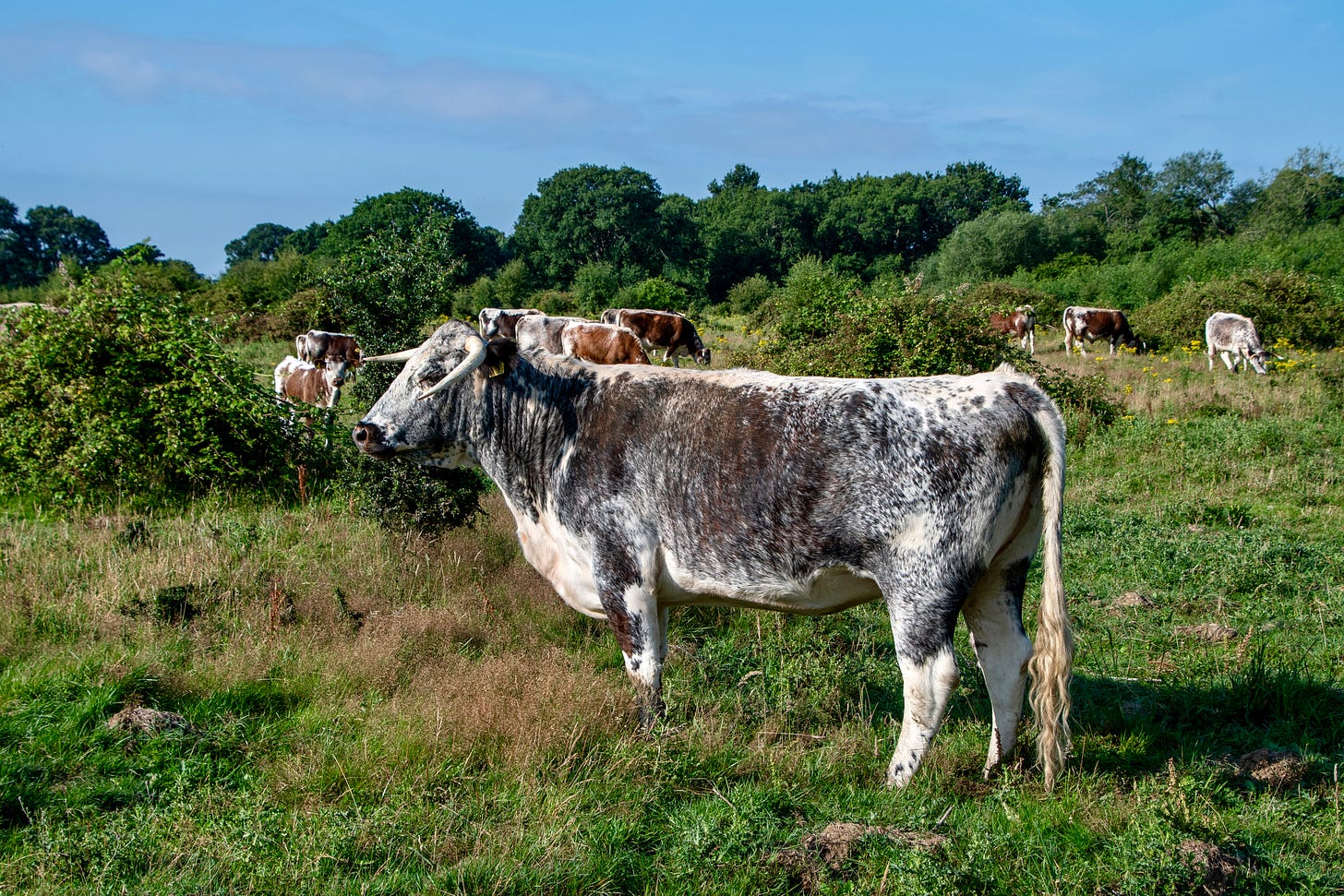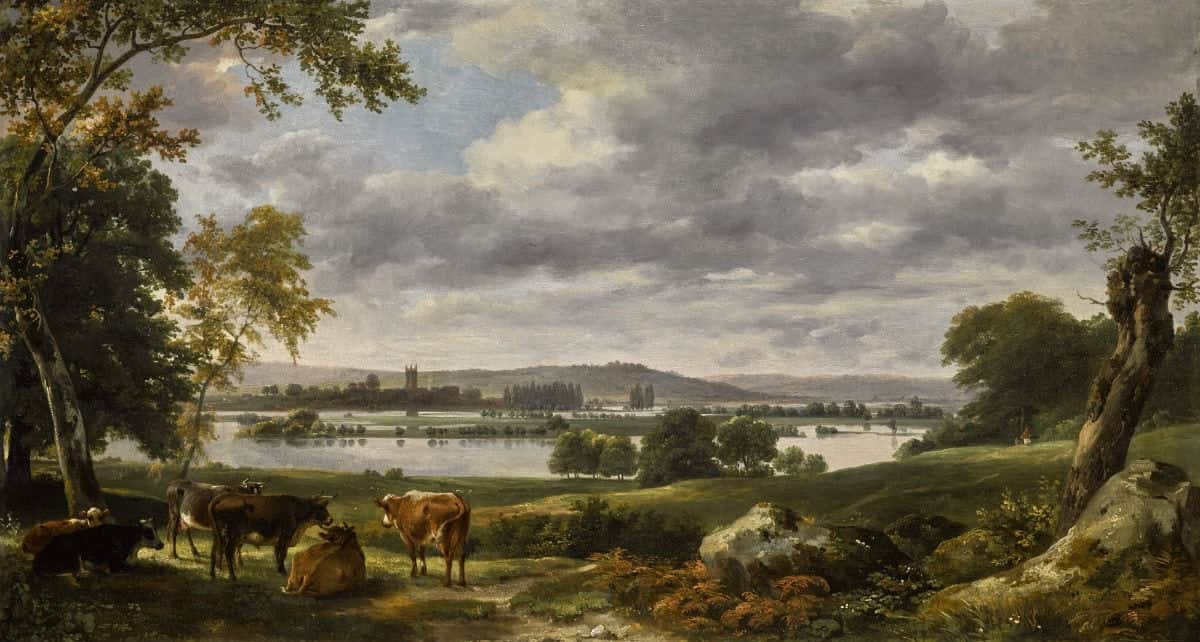The state of nature in Britain should cause farming at least a moment's reflection
At the exact moment farming finds itself most in need of our support, farmers are finding the love and the loyalty they have enjoyed for decades starting to wear thin.
Now is a difficult time to be a farmer. The market for food in Britain is structurally unfair. Public demand for ultra cheap food and the concentrated buying power of a handful of giant retailers have forced farm-gate prices down and down in a spiral that has wrecked farming profitability. Meanwhile a flood of imported foods produced to far lower standards than those imposed on our own farmers makes the situation even harder. Meanwhile, unpredictable weather events and a slow but catastrophic loss of topsoil, pollinating insects and other vital natural capital have made farming more and more of a struggle. The Labour government has recently added new layers of hardship, announcing an end to the agricultural property relief (‘APR’) which has been so vital in enabling generations of farmers to pass on the family farm free of crippling inheritance tax, and suggesting possible swingeing cuts to the farming budget.
The loss of APR seems to have been the final straw. Farmers have mounted big protests, and news of their plight has been all over the airwaves. But the public is not nearly as moved by all of this as it ought to be, or might once have been. Notwithstanding our total dependence on farmers, from childhood they and their happy, storybook farms loom large in our individual and collective psyche. Britain has always adored its farmers and their families. The risk of being labelled anti farmer strikes fear into the heart of any politician, let alone one representing a rural constituency. A quiet NFU hand on the shoulder is all it has ever taken for nearly any MP to leap into line. But all of this feels now to be in the balance, at the very moment farmers most need the loyalty and support of voters. A growing interest in healthy food, increased environmental awareness, and a national yearning, finally, for real nature recovery may be to blame.
You don’t need to have an environmental education to see and feel that we live amid an ecological wreckage. Britain ranks among the most nature-depleted countries in the world. Ask any old farmer, or practically any person over the age seventy or eighty, for a description of the nature they experienced during their childhood and you’ll hear stories of mile after mile of richly flowered hay-meadows (of which we’ve lost 97% since the war), grasslands singing with crickets, teeming with corncrakes, turtle doves; fat hedges brimming with yellowhammers, nightingales and all manner of birds now so scarce most people have never even seen or heard one; rural rivers running clear and full of fish; in every field a pond humming with dragonflies; clouds of butterflies; scrub-rich uplands echoing with the calls of cuckoos, curlews, plovers.
In one human lifetime, a farming revolution, fuelled with lavish EU subsidies, has engineered, tidied and drained our landscapes of water, colour and birdsong such that rural Britain today would be simply, shockingly unrecognisable to our great-grandparents. Our national parks in particular are an international embarrassment, hardly a single one of them is worthy of the title. The farming industry rightly points to factors beyond its control for what has happened, unfair market practices, societal expectations of cheap food, skewed incentives and so on. But it’s not all society‘s fault; a kind of slow-motion moral breakdown has undoubtedly taken hold in farming, as evidenced too by the abhorrent treatment of livestock on innumerable (often certified) indoor and outdoor livestock units. An absence of compassion for the natural world, or even a basic understanding of how nature works, seem to be pretty well widespread.
And all the time the public money kept flowing in the billions and billions. Did the farming industry really expect that people would not wake up in the end and scramble to save the last scraps of nature before there’s nothing left? Did nobody expect that the public might begin to understand the scale of what has been lost, and the threat that this fundamental loss of nature from our island poses to our society, and most of all to farming itself? Did farming not anticipate any kind of reckoning?

We are now six years into a momentous seven-year transition away from the opioid drip of unconditional EU subsidies, to Michael Gove’s new Environmental Land Management scheme (‘ELM’). Under the new scheme, farmers are paid no longer simply for existing, but for making real efforts to turn the tide on soil and nature loss. During the entire transition period, farming representatives privately and sometimes even publicly railed against the very idea of public money for public good. Behind closed doors, farmers were assured continually by their lobbyists that they needn’t worry, the transition would collapse. And yet still, more farmers than not have in time chosen to enter the scheme. In spite of everything, ELMS is starting to work out. England (if not yet the devolved administrations) is building a world-first funding programme for farming based on the delivery of much-needed public goods. It’s as if our society has come to understand that our land, plenty of which is hardly productive at all for farming, is not only for growing food; but that we need from it a whole range of things, such as protection from flooding, year-round clean water, abundant nature, pollinators. Countries around the world watching the progress of ELM with interest.
Perhaps, given relentless campaigning against ELM by the farming industry, it was inevitable that the government would look to slash the Environmental Land Management budget, as is now rumoured. The obvious fraying of voters’ loyalty to farmers, who are increasingly, if sometimes unfairly, seen to be beaver-hating, badger-killing maniacs, can’t have helped. Now farmers and nature-lovers have come together in mortification. Only last year, nature-obsessed uplands farmer and writer James Rebanks said that doubling the ELM budget would solve nearly all food, farming and nature issues. Of course he is right. But the government seems not to have listened.

Perhaps if farming industry representatives had recognised earlier that ELM is the surest way of ensuring the continued flow of public money into farming, and had been loudly cooperative in building it, we might be in a better place now. They might also have acknowledged that it is the right thing to do, given the devastation carelessly inflicted on nature, our life support system, by modern farming. We can only pray that the government will see sense and stick with ELM, even if voters appear to be woefully uninformed and disengaged on food and farming issues generally.
I have no doubt that a generous ELM is by far the best way to put right the wrongs of the past, underpinning farm livelihoods and ushering an era of farmer-led nature recovery, while ensuring the ability of future generations to continue to feed the nation without sawing off the branch on which we’re all sitting. We should all fight for it.





Another reason few understand farming is the lack of jobs in farming and opportunities to have a small farm now compared with previously. When nearly every worker has been replaced with an expensive (subsidised) machine and you have so few opportunities in farming rural communities are no longer farm workers nor allies of farmers even. Only 3 generations ago whole communities would have been employed and helped at least during harvest time etc. the disconnect is huge and farmers isolated. Improving machinery and technology has brought a different set of problems. Rural unemployment and migration to cities since industrialisation has transformed the whole country. It all started long ago with the enclosure act when they seized communal land that made living in these areas viable for so many commoners impossible. And so under 250 years later here we are. A ruined landscape and a general population totally ignorant of nature and food production.
I really hope the government has a come to Jesus moment and realises that this is an easy thing to fund and we would get infinite dividends from strengthening and increasing the reach and budget of ELM. Great read!